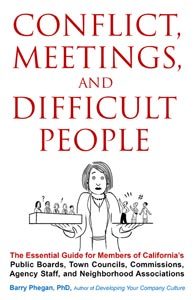 When I started this blogsite in May, 2019, I falsely imagined I was relatively baggage-free. These writings, and my failed efforts at finding a new life partner, pulled back the curtain. It’s not just baggage. I’m loaded with steamer trunks.
When I started this blogsite in May, 2019, I falsely imagined I was relatively baggage-free. These writings, and my failed efforts at finding a new life partner, pulled back the curtain. It’s not just baggage. I’m loaded with steamer trunks.
One major area I struggle with is judgementalism. It’s roots may come from being raised by upwardly aspiring parents, who bundled me with class-based rules. Here are a select few, just related to eating:
- Never put your elbows or forearms on the dining table.
- Use your knife and fork.
- Move your food to your mouth, not your mouth to the food.
- Never put so much food in your mouth that you can’t talk normally.
- Don’t chew with your mouth open.
And so on . . . . . . .
75 years later, I still feel uncomfortable if I’m eating with somebody who doesn’t do these things. These feelings aren’t reasonable, after all, it was only a few hundred years ago that everybody ate with their fingers and their personal knife.
Rules Are Rules, Norms Are Norms
My attempts to address my judgementalism come with plenty of self-analysis. For example, I realize there’s no objective “right” about the way we cut our hair, choose our clothes, or manage our greetings. These things are perfectly arbitrary, but if we don’t follow cultural norms, we’ll be judged wanting, rejected by our tribe, or even imprisoned.
And being a cultural transplant, I have feet in two camps, bringing added discomfort, but also perspective.
But my reasoning and reflection conflict with my actual experience and actions. I want to BE more accepting of myself, of others, and of the world around me, but my judgmentalism, the shoulds and shouldn’ts impressed during my childhood, get between me and potential life partners.
I project my judgments, then see faults where none exist. It’s frustrating, painful, and depressing. But it is who I am. Can I change? I would like to be less judgmental of myself and others, and be more accepting of myself and others.
Afraid to Speak Up
To be honest, I’m actually afraid of saying what I want, saying my likes and dislikes. If I don’t like what somebody is doing, I usually don’t say so. That’s partly because one of my childhood rules is, “If you can’t say something nice, don’t say anything at all.” It’s also because I don’t like hearing from others about what they don’t like about me. (I’m hard enough on myself without your additions, thank you very much.)
Even though I realize that my dislikes are mine — they are about me, not you — when I say I don’t like something you are doing, it feels like criticism, and I don’t want to be critical. I want you to think I’m a nice guy. I want to be liked.
The result of these tangled confused fears and longings is I don’t say anything. I’m knotted into silence — and I hate that feeling.
This is where I am today. I hope this is a work in progress and not a logjam.
Thank you for your patience.
me, Barry Phegan
Add Your Name below to my list to know when I have posted a new blog.





